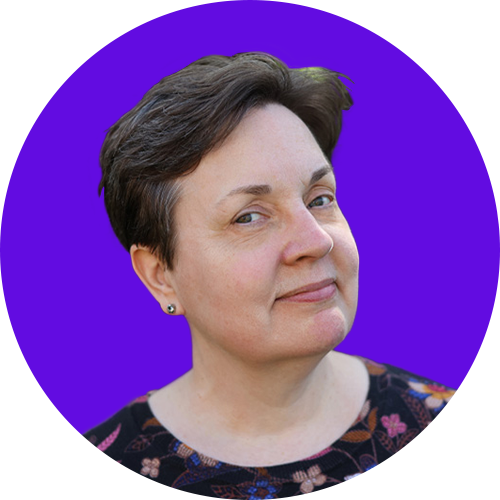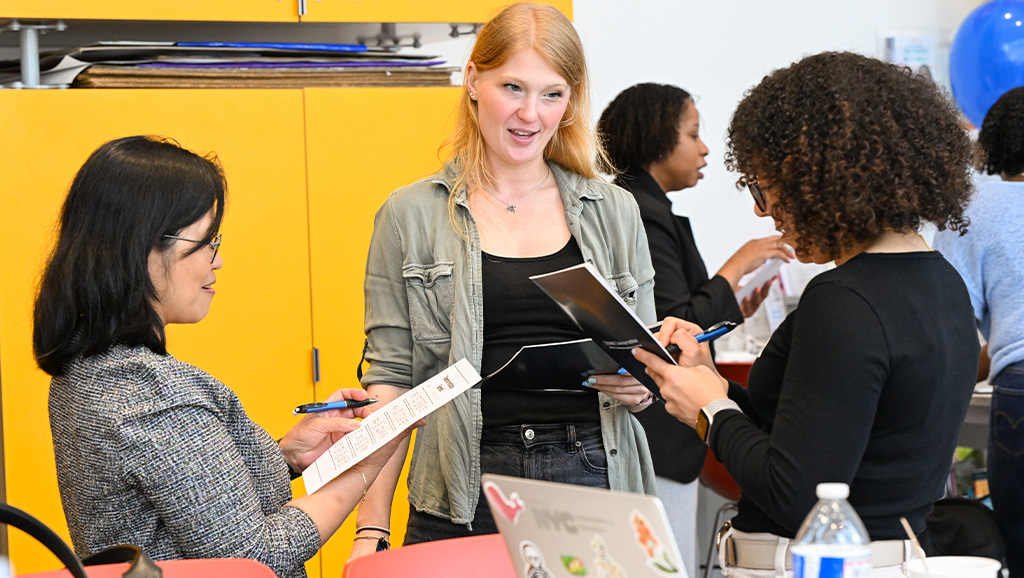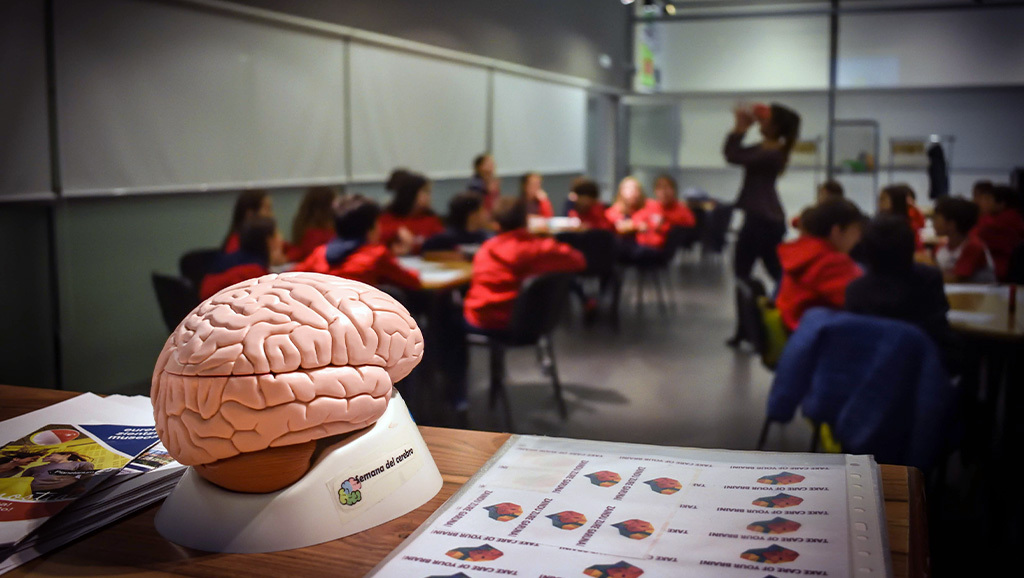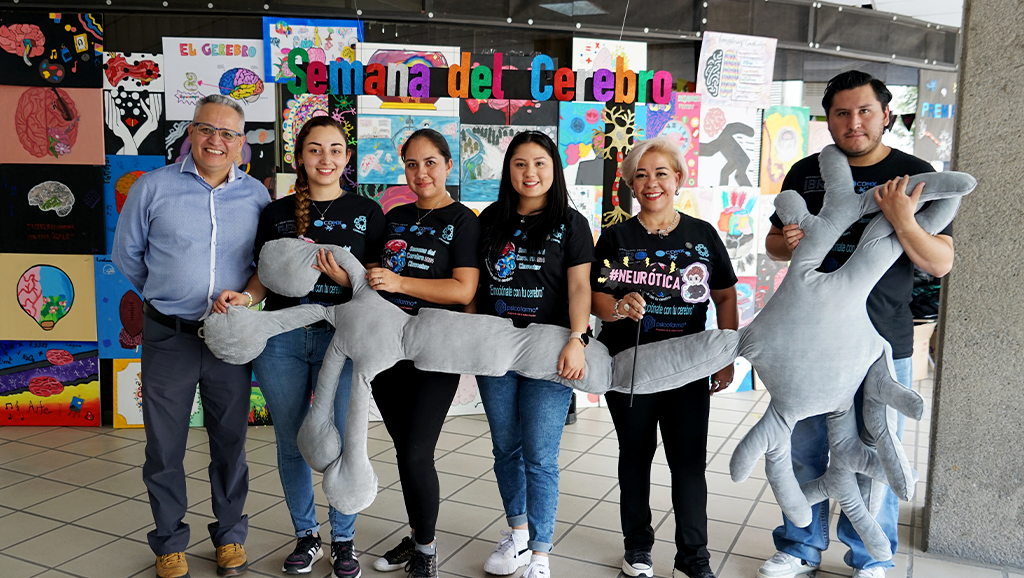News & Insights
Theanne Griffith Receives 2024 SfN Science Educator Award
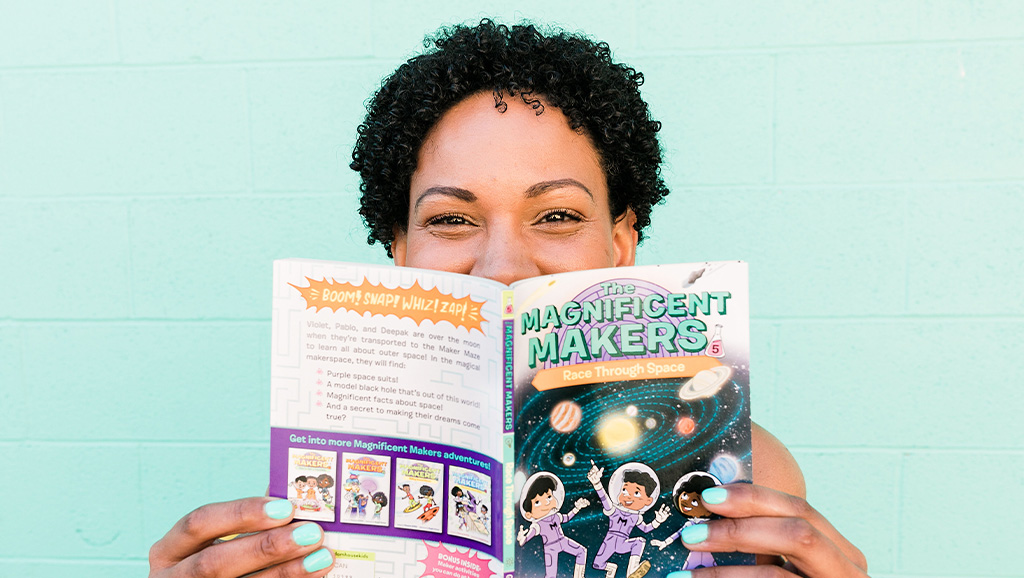
Each year, the Society for Neuroscience recognizes outstanding neuroscientists who have strongly added to public education and awareness about the field. The Dana Foundation sponsors these awards.
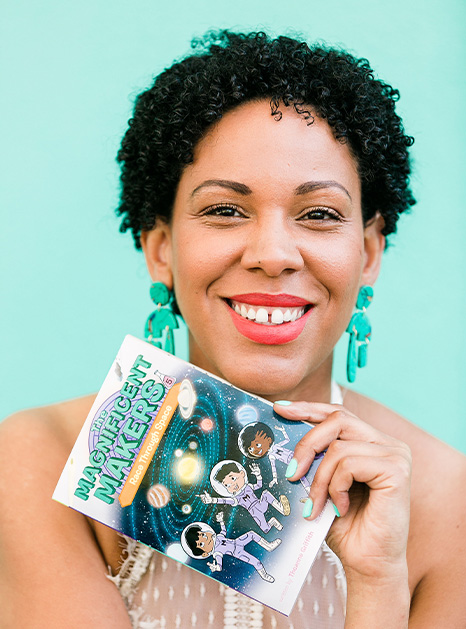

Theanne Griffith, Ph.D.
This year, one of two Science Educator Awards was presented to Theanne Griffith, Ph.D., a researcher at the University of California, Davis. (See our chat with the other awardee Emma Yhnell, Ph.D.)
Griffith’s passion to increase diversity within the scientific community has led to her writing and co-writing both fiction and nonfiction children’s books that teach scientific concepts. The Magnificent Makers is her STEM-themed chapter book series; she also co-writes the nonfiction companion books to the Netflix series, Ada Twist, Scientist.
Q: What inspired you to start writing STEM-themed books for children alongside your neuroscience research career?
Griffith: I’ve always been a writer and enjoyed storytelling. Even as a young child, I entered and won several essay competitions in my local community. But I also loved science and was fascinated by the world around me and focused my efforts on becoming a neuroscientist for most of my career.
There was always this feeling inside me, however, of wanting to write books, specifically books for kids. There is something so special about children’s imaginations, and being able to tap into that through storytelling always attracted me.
I decided to finally listen to that voice after I had my first daughter in the spring of 2017. I had been reading a lot to her and felt very motivated to write kids’ books of my own. I’ve had a longstanding passion for science outreach and improving access to science education to underrepresented and underserved groups, so it felt very natural to write books featuring diverse characters who loved science. That kind of representation was sorely missing for me as a child, and so I was very much inspired to fill that gap in children’s literature.
What is most satisfying about connecting to kids and families through your virtual and in-person visits? What was most surprising or eye-opening?
This is probably the best part of my experience being a children’s book author. It’s really hard to describe how special it is to see kids excited to talk to you about the stories you’ve created, and honestly, I’m not sure what the most satisfying part is. I love it all.
I love their questions, which are always so good. There are always one or two kids (sometimes more!) that really surprise me and come with a very well thought-out question that shows me just how much they fundamentally understand what we are talking about and the big-picture implications. I love the surprised looks on their faces after I do a science demonstration. I love the thank you notes they often send afterwards, and I save them all.
Another very satisfying aspect of connecting with kids and families is showing them that someone who looks like me, a Black woman who sometimes wears braids, a curly afro, or cornrows, is a “real” scientist. When I was little, I didn’t have that, and I think that representation would have made me more confident in my abilities.
Can you tell us about a particularly memorable experience from your school visits or science outreach events?
I remember one visit in particular to a school district in Michigan. It was March of 2022. Because my books first published in May 2020, all of my school and library events up to that point were virtual. This was my first in-person school presentation. It was a two-day visit, and I presented to about ten classrooms in total and also gave a community presentation for children and their families.
On the second day, a teacher approached me because a student was crying. The student was absent the day prior, and she had missed my presentation. The teacher asked if she could join the next class on my schedule, and of course I agreed. Then she introduced me to the little girl, and I immediately understood her tears.
She was a little Black girl in an overwhelmingly white district, and she reminded me so much of little Theanne. I almost cried, too! And I still get emotional thinking about her. She reminded me how much my presence, and me being visible as a scientist, matters—and that is satisfying beyond words.
What are the most important things you want to teach/share with people?
I think that depends on who “people” are. With my books, I want to teach kids that anyone can love science and be good at it. I also want them to develop an appreciation for science. My goal isn’t, “every child wants to grow up and become a scientist.” But I do hope that all kids appreciate the value and beauty of scientific discovery and aren’t intimidated by the scientific process.
For trainees, I hope to show them that they can pursue endeavors beyond the bench, and they shouldn’t be scared to bring the entirety of who they are as people to their professional lives. I was nervous about how I would be viewed initially, but it was all for naught.
For my faculty colleagues and others more advanced in their careers, I hope to remind them of the power and responsibility we have to our communities, and that outreach shouldn’t be an afterthought. We are all busy. We are all on too many committees, review too many papers, sit on too many review panels. But we still have a responsibility to educate the public, even the youngest members, about our craft.
Are there any challenges you’ve faced in bridging the worlds of academic research and children’s science education?
No, not really. I am glad I started writing the books when I did (as a postdoc) because time is probably the only challenge I currently face. But it really has been such a fun ride. I can’t wait to see what the future holds and what new projects may emerge.
Did you have a model or a mentor for this work?
I didn’t have a direct mentor or model, but I did a lot of background research before getting started, including listening to numerous podcasts about writing for kids and attending children’s literature conferences. All the information I learned was crucial for me getting started and finding success.
